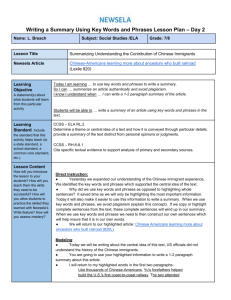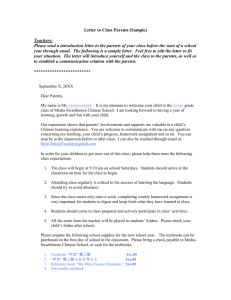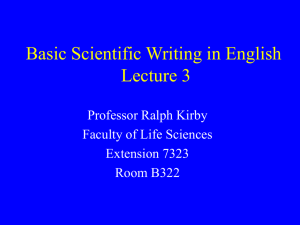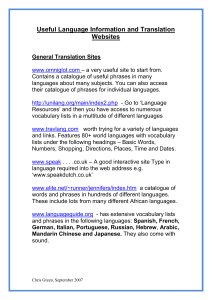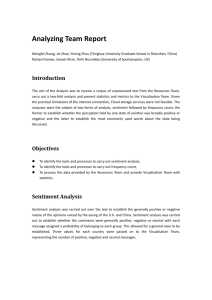BreachMSCentralIdea1 - Newsela | Learning & Support
advertisement
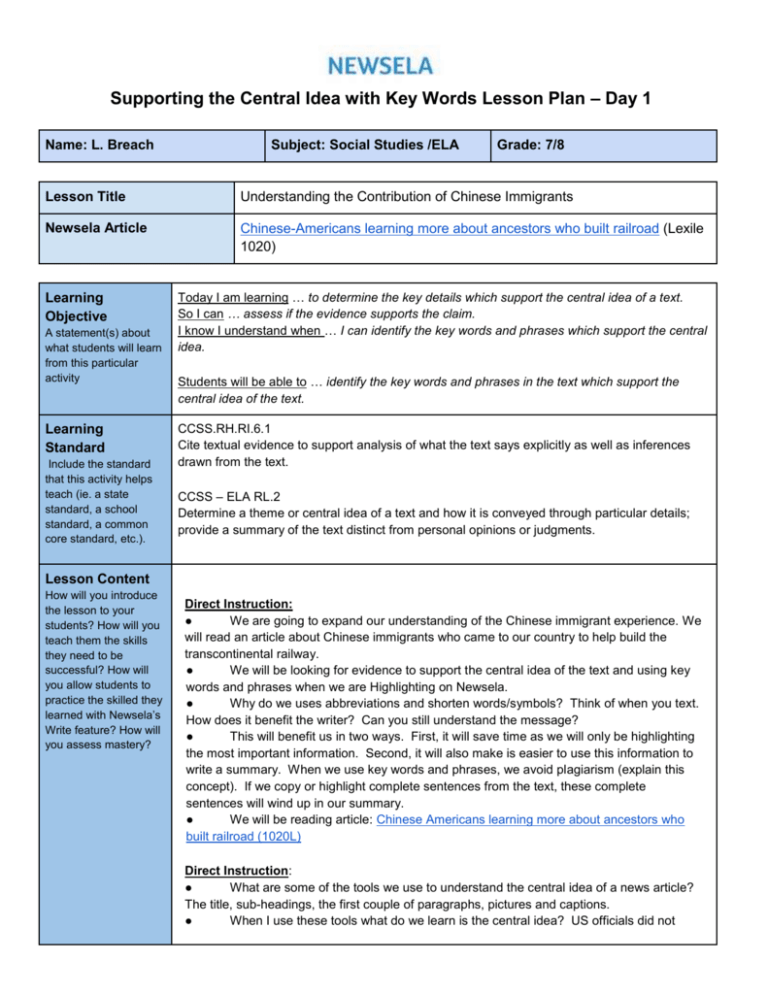
Supporting the Central Idea with Key Words Lesson Plan – Day 1 Name: L. Breach Subject: Social Studies /ELA Grade: 7/8 Lesson Title Understanding the Contribution of Chinese Immigrants Newsela Article Chinese-Americans learning more about ancestors who built railroad (Lexile 1020) Learning Objective A statement(s) about what students will learn from this particular activity Learning Standard Include the standard that this activity helps teach (ie. a state standard, a school standard, a common core standard, etc.). Today I am learning … to determine the key details which support the central idea of a text. So I can … assess if the evidence supports the claim. I know I understand when … I can identify the key words and phrases which support the central idea. Students will be able to … identify the key words and phrases in the text which support the central idea of the text. CCSS.RH.RI.6.1 Cite textual evidence to support analysis of what the text says explicitly as well as inferences drawn from the text. CCSS – ELA RL.2 Determine a theme or central idea of a text and how it is conveyed through particular details; provide a summary of the text distinct from personal opinions or judgments. Lesson Content How will you introduce the lesson to your students? How will you teach them the skills they need to be successful? How will you allow students to practice the skilled they learned with Newsela’s Write feature? How will you assess mastery? Direct Instruction: ● We are going to expand our understanding of the Chinese immigrant experience. We will read an article about Chinese immigrants who came to our country to help build the transcontinental railway. ● We will be looking for evidence to support the central idea of the text and using key words and phrases when we are Highlighting on Newsela. ● Why do we uses abbreviations and shorten words/symbols? Think of when you text. How does it benefit the writer? Can you still understand the message? ● This will benefit us in two ways. First, it will save time as we will only be highlighting the most important information. Second, it will also make is easier to use this information to write a summary. When we use key words and phrases, we avoid plagiarism (explain this concept). If we copy or highlight complete sentences from the text, these complete sentences will wind up in our summary. ● We will be reading article: Chinese Americans learning more about ancestors who built railroad (1020L) Direct Instruction: ● What are some of the tools we use to understand the central idea of a news article? The title, sub-headings, the first couple of paragraphs, pictures and captions. ● When I use these tools what do we learn is the central idea? US officials did not understand the history of the Chinese immigrants. ● Today we are going to read the text and look for evidence that supports this claim. We are going to only underline KEY WORDS and PHRASES. This is important because tomorrow we are going to write a summary and we want this summary to be in our own words. Modeling: ● I will read the first 2 paragraphs of the article aloud. ● I will underline the key words needed to understand the central idea, US officials did not understand the history of the Chinese immigrants. “Like thousands of Chinese-Americans, Connie Young Yu's parents had forefathers who helped build the U.S.'s first coast-to-coast railway. In May of 1969 the two attended ceremonies marking the hundredth anniversary of the massive project's completion. During the 1860s many thousands of men migrated from China to work on the project. Yu's parents were proud of the Chinese contribution to the building of the transcontinental railway. Their pride quickly turned to dismay as they listened to Transportation Secretary John Volpe’s remarks during the ceremonies. Volpe completely ignored the Chinese migrant contribution.” ● Notice that I am leaving out some of the smaller words in the sentences. If I was writing this in my notebook, I would change “Like thousands” to “1,000’s”. ● When I look for key words and phrases, I will often leave out what may be considered interesting information such as the fact that it was a massive project or thousands of men migrated from China. ● Now let’s do the next 2 paragraphs together as a class. Articulate the difference between possibly interesting information and essential information. “He gave this oration saying, ‘Who but Americans could have blasted tunnels through the Sierras? Who but Americans could have built 10 miles of track in one day?’” recalled Yu, 73, a historian and author. “He had no clue of the history.” In the years since, Yu and others have sought to flesh out the stories of these long-anonymous Chinese migrants and win wider recognition for their role in the building of the American West. Until recently, their success was limited. Student Practice: ● After modeling together students will go to their individual Reading Level to complete reading and assignment. ● Directions: ○ Highlight in YELLOW the key words and phrases that support the central idea. Remember to use the subheadings to help guide you. Do not be surprised if there are large areas you do NOT highlight. ● Monitor what students are highlighting and assist where needed. Guided Questions: ● How does this support the central idea? ● Can you shorten what you highlighted? Assessment: ● Share your highlights with the class. Discuss answers and differences. ● Students will show comprehension mastery by having 80% similar highlights as teacher. Accommodations What scaffolds can be included to support learners? Can you anticipate different reading level for students? Extensions How can you support high level learners? Can you anticipate reading level and Writing Prompt to challenge? ● Work with small groups and discuss sections of text. What is the difference between interesting information and evidence that supports the central idea? Make sure that the central idea is written in front of students. ● Provide on-task focusing prompts. ● Assign leveled articles based on Student Performance levels in Binder. ● Increase Reading Level (1130 and higher based on Student Performance Levels in Binder). ● Assign second article: Chinese-Americans remember a time when U.S. law excluded most Chinese ○ Have students continue to practice highlighting key words skill. ○ Can they identify the central idea independently?
